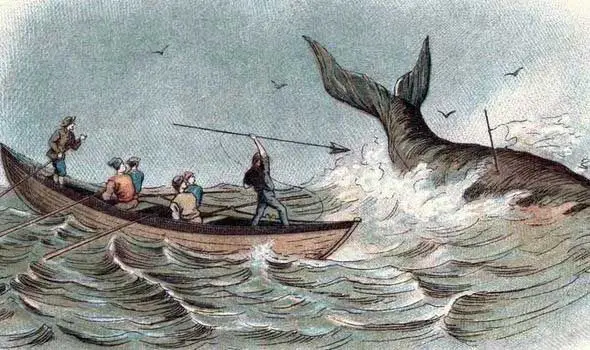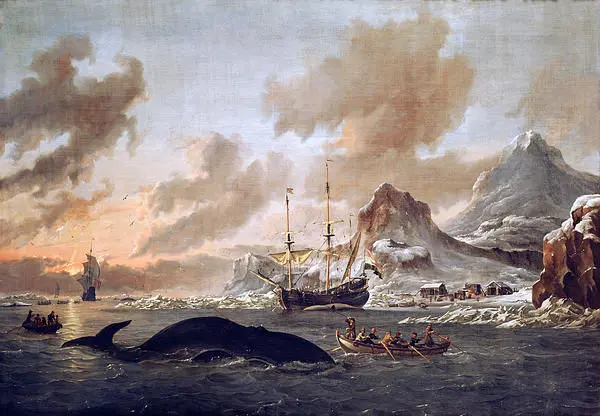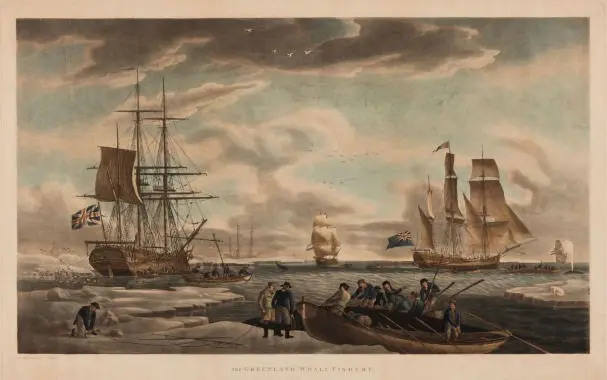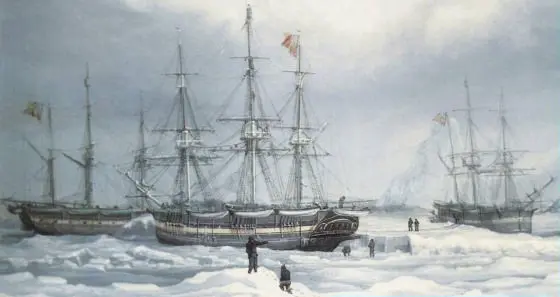Greenland Whale Fishery
In eighteen hundred and forty-six
And of March the eighteenth day,
We hoisted our colours to the top of the mast
And for Greenland sailed away, brave boys,
And for Greenland sailed away.
The lookout in the crosstrees stood
With spyglass in his hand;
There's a whale, there's a whale,
And a whale fish he cried
And she blows at every span, brave boys
She blows at every span.
The captain stood on the quarter deck,
The ice was in his eye;
Overhaul, overhaul! Let your gibsheets fall,
And you'll put your boats to sea, brave boys
And you'll put your boats to sea.
Our harpoon struck and the line played out,
And the whale gave a flourish of his tail,
He capsized our boat, and we lost five men,
And we did not catch the whale, brave boys,
And we did not catch the whale.
The losing of those five jolly tars,
It grieved the captain sore,
But the losing of that fine whale fish
Now it grieved him ten times more, brave boys
Now it grieved him ten times more.
Oh, Greenland is a barren land
A land that knows no green
Where there's ice and snow, and the whale fishes blow
And the daylight's seldom seen, brave boys
And the daylight's seldom seen




